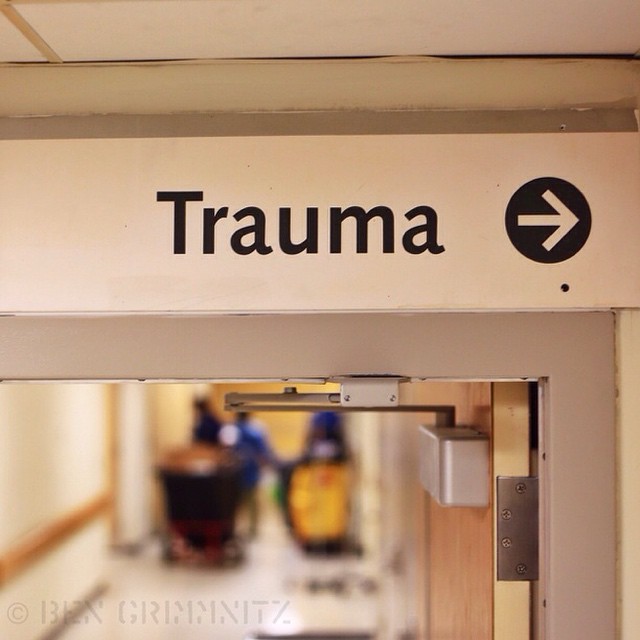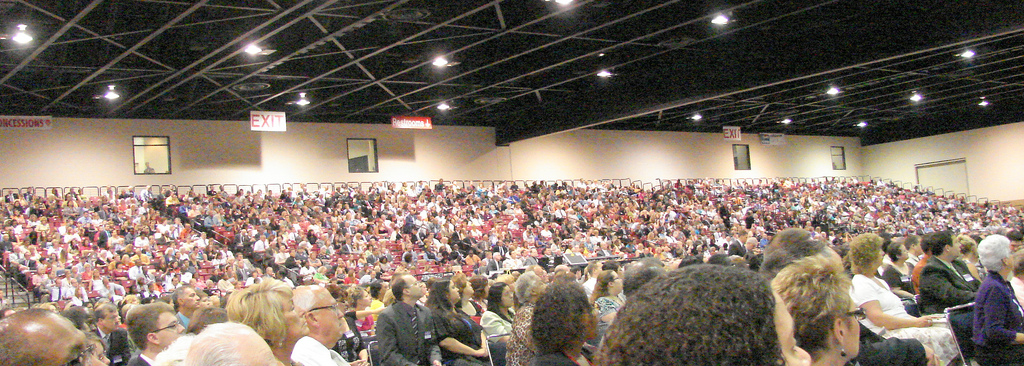Let´s first define trauma: yes, it is a physical injury that hurts a lot. But trauma is also a very stressing experience and a deeply disturbing moment for a person. Some of us experience traumas in many different ways and we suffer many of those, physical and emotional throughout our live, in every moment, almost in everything we do. It is a natural human condition.
How do we deal with trauma? Specifically the emotional trauma? We have psychologists, doctors, therapies that are and are not useful, and many more things that can help us understand and overcome trauma.
There is also an option in Santa Barbara California called The Institute for Congregational Trauma and growth that is dedicated to provide research, education, and networking tools for members of ministries and ministers to address the problem of emotional trauma and their long term congregational care needs so they can be informed and build a very good and experienced trauma-informed congregational ministry. In other words, The Institute for Congregational Trauma and Growth gives the ministers the tools they really need to really address the issue.
Let’s take a look at their story and how they came to be.
In order to understand how they work, we must understand how they see and define trauma: the ICTG organization defines congregational trauma as the deep emotional, physical, and spiritual responses of a group to sudden and unexpected events that put lives in danger, seriously injure and affect persons, or threaten the communing structure of the congregation in certain ways that really affect the ability of the group to operate or to communicate and it restricts the group within or around the congregation. Some of the most common causes of trauma within a congregation can be natural disasters such as storms, wild fires, flooding, earthquakes; industrial accidents, sudden acts of violence, terror attacks, or abuse, and the direct betrayal of trust by leaders.
But trauma does not only limit to congregations or groups. Trauma also is seen in individuals and is as normal as sadness or shame. The problem is that when a person is traumatized it is difficult to understand and sometimes the person doesn’t even talk about it or expresses it.

With this in mind, the institution for congregational trauma and growth is addressing minsters and ministries to help leaders get the right information on treating trauma and difficult situations. The idea that ICTG has is that one day every minister can easily find and access useful tools and all the information that they need to deal with the traumas and disasters that occur within their congregations and communities. ICTG also works towards giving ministers, community preachers, directors of any type of worship ministry, directors of children and youth ministries, small group leaders, therapists and caregivers, and directors of missions all the information they need to be informed and educated on how can communities and people be healed when crisis knocks on their doors.
Another dream that ICTG has is that all the minsters and ministries and youth groups can build relationships that strengthen congregations. The world is changing at a fast pace and the idea is to keep up with the world, so ICTG is going one step ahead and is leading the change by providing the right information for all the problems that arise this modern world.
The values that ICTG has are the following:
They provide practical Solutions. They understand that faith sometimes needs a little bit of help. ICTG gives these communities the creative tools to fully understand the power of a healing community and how they can really impact their congregations in real life.
They understand the importance of convening and inclusion: communities that revolve around faith are always a central meeting point. These communities are always a good way to find the support needed in a difficult moment. ICTG preaches and teaches inclusion as a way of healing traumas and a way of accomplishing whole community care.
A complete approach: communities provide all the critical factors needed to heal anybody in a moment of trauma: calming, the community, and open communication. With the help of ICTG communities can enhance and highlight these practices and make them an important part of the congregation life.
Reliability: ICTG understand that the only way that communities trust their congregations is the ongoing and permanent presence that the ministers or faith communities have within the neighborhoods. ICTG gives faith communities all the networking tools needed to expand their network and to strengthen their trustworthiness, safety, and care.
Be sure to also check this amazing article on another institution that is giving second chances to people that have committed mistakes and that want to continue living their lives as civilized citizens.

